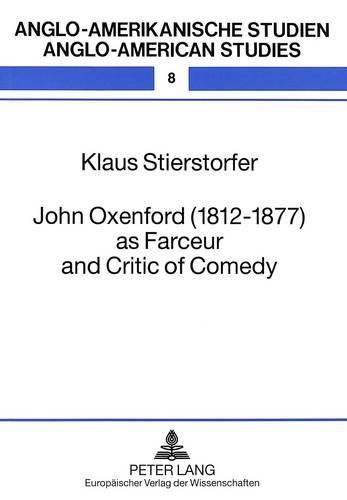John Oxenford (1812-1877) as Farceur and Critic of Comedy
Klaus Stierstorfer

John Oxenford (1812-1877) as Farceur and Critic of Comedy
Klaus Stierstorfer
John Oxenford (1812-1877) was a prominent figure in the 19th-century theatrical landscape. A successful playwright himself, he gained equal respect as theatre critic of The Times for 30 years. His literary achievements also include a number of competent translations and many contributions to periodicals on a variety of subjects. This study explores the exuberant world of his farces, identifying them as the genre best suited to his literary taste and outlook. Chapters I-III highlight his theoretical views on comedy and drama implied in his many essays and reviews. The results are then used in a close analysis of his plays in chapters IV-VIII. In the process, Oxenford’s farces emerge as a highly original body of theatrical literature, based on an expert understanding of the stage, clear dramatic concepts, a Rabelaisian appreciation for fun, and an unerring sense for the expectations of a Victorian audience.
This item is not currently in-stock. It can be ordered online and is expected to ship in approx 4 weeks
Our stock data is updated periodically, and availability may change throughout the day for in-demand items. Please call the relevant shop for the most current stock information. Prices are subject to change without notice.
Sign in or become a Readings Member to add this title to a wishlist.


